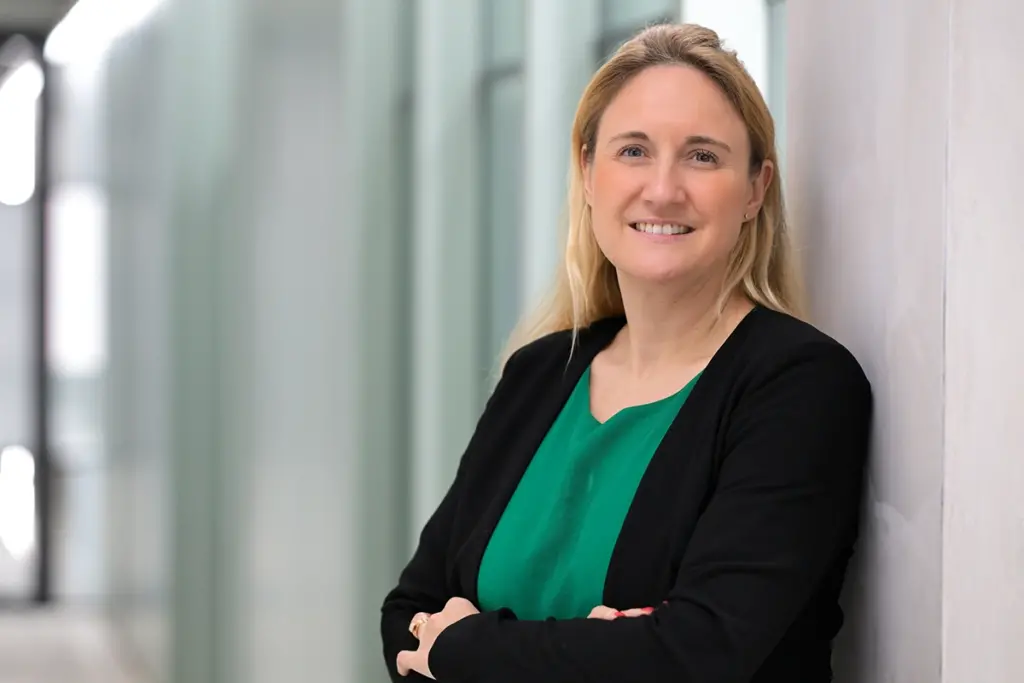
Though the financial services industry is making strides towards closing the gender inequality gap, female talent continues to be hugely underrepresented in leadership roles. Even in 2023 only 27 per cent of FTSE 100 CFOs were women, and out of the 40 per cent of FTSE 100 board positions held by women, 92 per cent hold non-executive positions.
And, while there has been progress in reducing the gender imbalance within the industry, women still tend to take on emerging roles such as Chief Digital Officer, Chief Diversity Officer, or Chief Sustainability Officer, as opposed to traditional roles like CEO an CFO.
According to Deloitte’s ‘Striving for Balance’ – Women in Finance Report (March 2024), ‘companies with women on executive boards earn 47 per cent higher rate of return on equity than companies without females on the board’. Despite this, the gender pay gap continues to persist with an average gap of 15 per cent in the UK.
A more balanced integration of women in prominent positions within financial services not only stands to positively influence socioeconomic causes, such as like the gender pay gap or the gender wealth gap; but can play a key role in breaking down barriers, emphasising inclusivity and reduce poverty. And, according to Deloitte, addressing the balance also holds the potential to contribute an estimated $28 trillion by 2025 to global GDP.
This International Women’s Day, we’ve talked to three leading women at SJP to understand what motivates their role in financial service:
Alexandra Loydon, Partner, Director of Engagement and Consultancy, SJP

I am deeply committed to empowering women to confidently seek and receive quality financial advice. My passion extends beyond my role at SJP, driving me to actively contribute to financial education as a Governor at an all-girls school. By integrating financial education into the curriculum, we aim to equip young girls with the knowledge and confidence they need to navigate the complexities of the financial world, and to start bridging the wealth gap between men and women.
Systemic disparities in earnings, financial confidence, and access to advice, stemming back to childhood, where boys tend to interact more with money, generally receiving more pocket money than girls, have set the stage for lifelong differences in financial behaviour, perpetuating unequal outcomes later in life.
Higher salaries for men and greater financial confidence and as such, more investment power, contribute to the widening wealth gap over time and prove the need for more accessible financial advice to a wider demographic. This is a growing problem given that women tend to outlive men.
With over 16,000 centenarians alive in the UK today, of whom over 75 per cent are women, and with this number rising on average by 20 per cent per year, the implications of inadequate retirement planning become increasingly dire. A critical contributor to the retirement crisis is the alarming number of individuals approaching and navigating their later years, without a financial plan.
My motivation is rooted in a desire to bridge the gender pay and wealth gaps. By fostering financial literacy from a young age, we empower women to make informed decisions, invest wisely, and secure their financial futures. I believe that through education and empowerment, we can create a paradigm shift, ensuring that women not only close the wealth gap but confidently navigate the path to financial freedom and retirement security.
Dr. Sarah Ruggins, Interim Head of Investment Specialists, SJP

I am motivated professionally by a commitment to fostering access, equality and diversity within the financial services industry. I firmly believe in the power of representation and work to ensure that women and all minorities are not only well-represented in industry circles, but also have access to trusted and quality financial advice tailored to their unique needs. This means challenging common perceptions of the type of individual that can be successful in financial services, as well as the type of individual who is able to access financial advice. In short, it is my hope that by creating a diverse and inclusive industry, we can encourage more underrepresented individuals to take financial advice, participate more fully in the capital markets, and close any wealth gaps that exist.
Why do I think a diverse industry will encourage more financial participation and the closing of various wealth gaps? There exists a behavioural phenomenon where individuals are more likely to seek advice from those who look like them or belong to their peer group – the same is true of our social circles, where we surround ourselves with individuals who tend to support our world views and social characteristics. In an industry marked by a skewed gender split and underrepresentation of ethnic and religious minorities, a substantial portion of the population that could be receiving advice is not accessing it. This has been known to create barriers to participation and perpetuate inequality as individuals can be dissuaded from accessing advice and achieving financial freedom.
There are some exceptional movements underway to encourage diversity in financial services, which is an excellent first step. But I believe that industry can be doing more to build talent pipelines for individuals from diverse or non-traditional backgrounds. We as leaders must also be held responsible for giving these individuals every opportunity to build a career where their strengths can be rewarded and go on to drive positive client outcomes.
For me, IWD it is about catalysing a broader, more significant shift that addresses the inherent disparities in financial services. By acting as role models and serving the voices of underrepresented groups in whatever form they take, we as leaders can pave the way for a more inclusive financial landscape, where diversity is not just acknowledged but celebrated. Through intentional team building and client servicing, we can redefine the narrative, ensuring that good careers and good financial advice is accessible to all, irrespective of gender or background.
Tracey Reddings, CEO / Founder Reddings Wealth Management Ltd (A Partner Practice of SJP)

I am dedicated to championing the equality of advice, particularly in the intricate realms of navigating divorce and bereavement. Working with affluent women, I find fulfilment in guiding them through not only the financial complexities but also the emotional challenges that accompany significant life transitions. In finance, behavioural biases influence investment decisions, and my role as a Financial Alchemist involves transforming these biases into well-informed choices.
For women, these biases can be more pronounced due to factors like time famine, financial confidence, education gaps, and a perceived aversion to risks. Your personal finances are a pathway to empowerment. As a financial advisor, I am committed to democratising advice, dismantling these barriers, and empowering women to harness the benefits of working with a trusted advisor.
My practice allows me to focus on the clients I am most passionate about – professional women navigating both triumphs and tribulations. Together, we forge a path toward financial confidence, long-term plans, and a future where women not only catch up but surpass their male peers in the realm of investing. It’s never too late to start seriously investing or tailoring a wealth management strategy. Within SJP, I find the freedom to prioritise this mission, a privilege that sets my practice apart in the pursuit of financial wellbeing.

